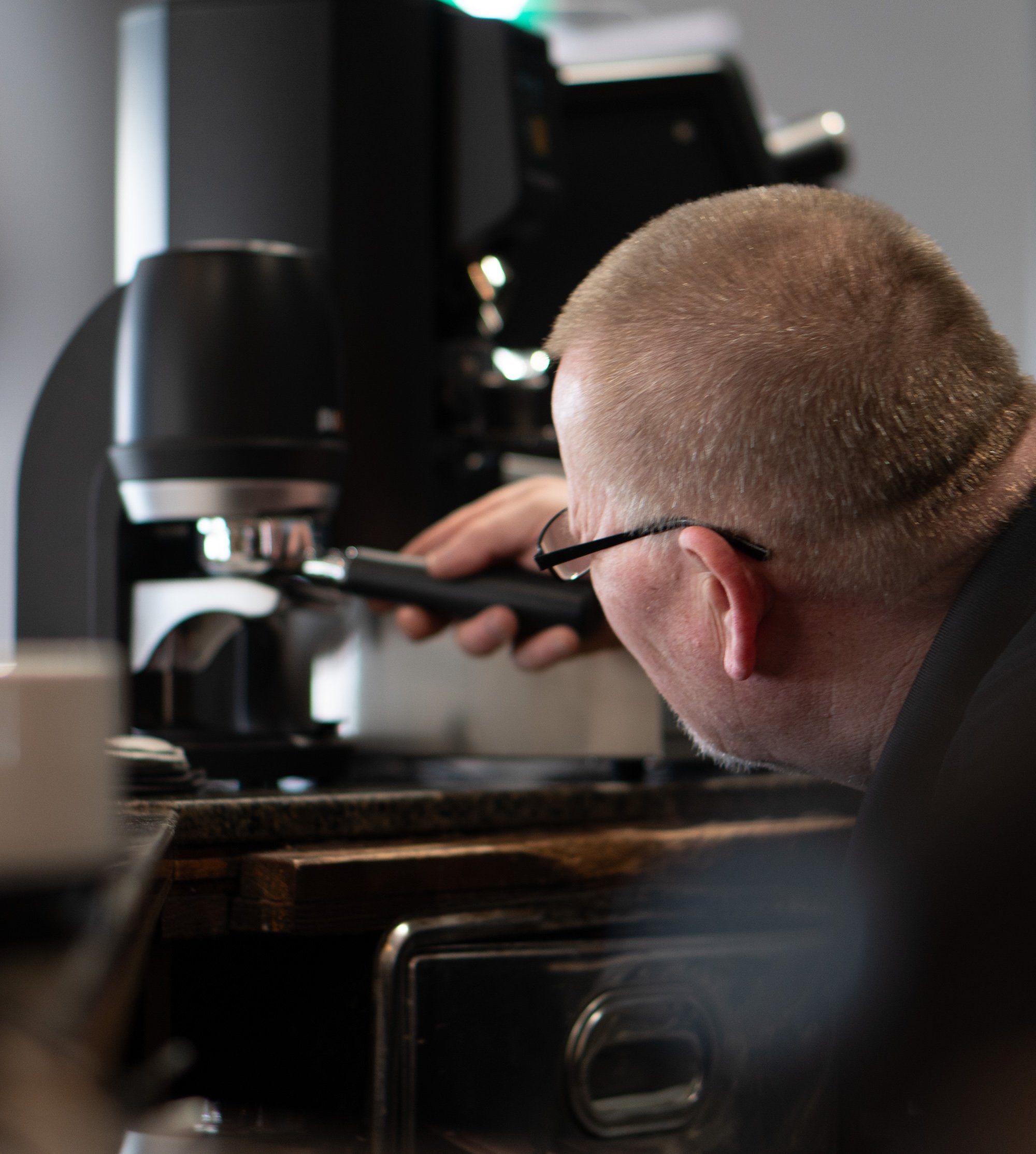02 October 2025
Why Has My Commercial Coffee Machine Broken Down?
Jack Merriman
Digital Marketing Manager
When your commercial coffee machine breaks down, it often happens at the worst possible time, during a busy morning rush or just before a service. These machines are designed to be durable, but like any piece of equipment, they’re not immune to faults.
If you’re facing an unexpected breakdown, the cause could be one of several common issues. Below, we outline the main reasons commercial machines fail, followed by a quick checklist of what you should check for and things to consider.
Common Causes of Machine Breakdowns
Scale Build-Up
Hard water is one of the leading causes of machine failure. Mineral deposits collect in boilers, pipes, and valves, restricting water flow and putting strain on components. Over time, this can burn out heating elements or block steam wands entirely.
Leaks and Broken Seals
Rubber seals and gaskets deteriorate under constant heat and pressure. When they fail, leaks appear around the group head, steam wand, or even underneath the machine, reducing efficiency and risking water damage.
Pump and Pressure Problems
If your pump begins to wear down or water lines are blocked, the machine will struggle to maintain consistent brewing pressure. This leads to weak, slow extractions and uneven coffee quality.
Electrical Faults
From blown fuses to faulty thermostats, electrical components are another common failure point. If your machine isn’t heating, powering on, or is showing errors on its display, the issue is often electrical.
Clogged Milk System
Automatic milk frothing systems are especially vulnerable to blockages if not cleaned properly. Residual milk can cause sour flavours, hygiene risks, and complete system failure.
Grinder Wear
Grinders work hard every day. Dull burrs, oily hoppers, or foreign objects in the grinder cause inconsistent grind size, noisy operation, and uneven extractions.
Heating Problems
A faulty thermostat or limescale-coated heating element can stop your machine from reaching the right brewing temperature. The result is coffee that’s too cold, weak steam, or long warm-up times.
Sensor and Water Tank Issues
If your machine is warning of an empty tank when it’s full, or struggling to fill correctly, the fault often lies with sensors or misaligned tanks. Biofilm or scale build-up on probes can also cause inaccurate readings.
Group Head Wear
The group head is the engine room of the machine. Worn gaskets, clogged shower screens, or dirty group heads can cause uneven water flow, leaks, and bitter-tasting coffee.
General Lack of Maintenance
Perhaps the most common cause of breakdown is simple neglect. Without daily cleaning and regular professional servicing, coffee oils, limescale, and worn parts build up until something critical fails.
Symptoms to Look Out For
When you notice issues with your commercial coffee machine, it's important that you are able to properly describe the symptoms of the fault to an engineer so that they have a clear idea of the issue at hand. Things to look out for include:
- Water leaks around the machine
- Pressure gauge dropping or swinging during extraction
- Coffee that tastes burnt, sour, or unusually weak
- Steam escaping from unexpected places
- Strange noises from the grinder or pump
- Empty tank warnings despite a full tank
- Portafilter not locking properly or leaking during use
Things to Consider
To help properly diagnose the issue, a coffee technician may ask you a series of questions regarding the history of your coffee machine. These will help the engineer to get a clear understanding of the health of the machine and where the issue is likely to have come from.
- When was the machine last descaled or serviced?
- How often are seals and gaskets replaced?
- Is filtered water being used, and when was the filter last changed?
- Have the grinder burrs been replaced recently?
- Is the milk system cleaned daily with the correct solution?
- Has the machine had a full pressure and safety inspection in the last 6–12 months?
Prevent Breakdowns From Happening with Bridge Coffee Roasters
The best way to avoid breakdowns is with preventative maintenance. Regular servicing catches small issues before they become costly failures, extends the life of your machine, and keeps coffee quality consistent.
With a Bridge Coffee Roasters service contract, you’ll get scheduled maintenance, priority engineer call-outs, and clear service level agreements tailored to your business. It’s peace of mind, less downtime, and a machine that’s always ready to perform.


